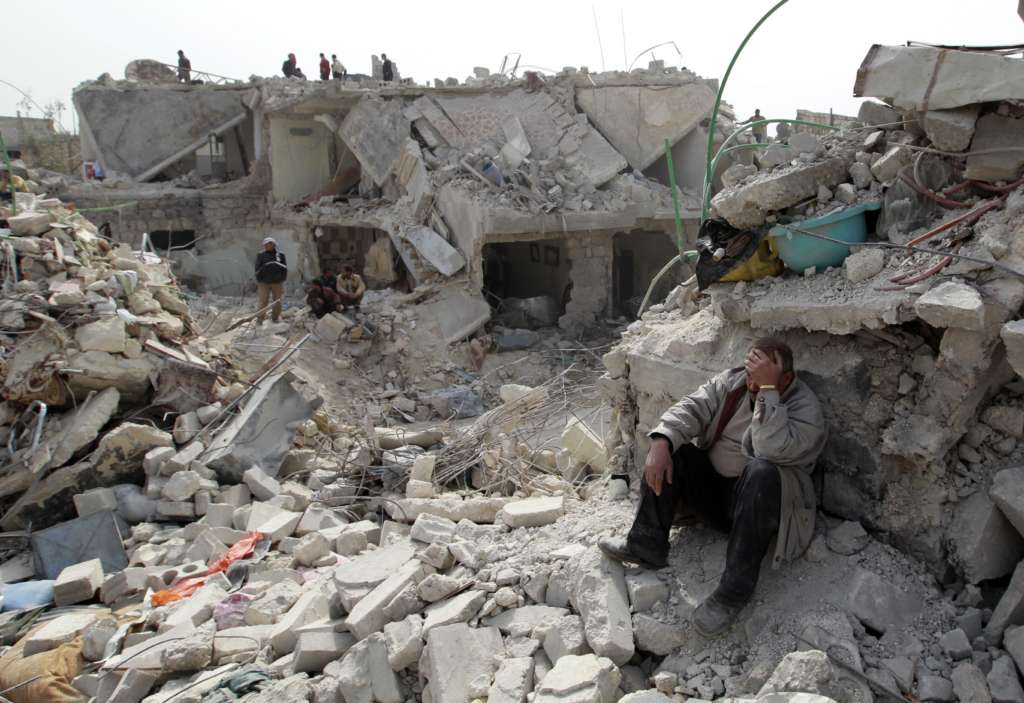It is understandable when Turkey urges the United States to stop arming Kurdish organizations in Syria, especially the Syrian Kurdish Democratic Union Party (PYD), because it sees them as a threat to its stability and unity. Yet, the Western Coalition picked them to be their proxy inside Syria in the fight against ISIS.
When the Turks realized the Syrian-Kurdish game, they directly waged wars against ISIS through Operation “Euphrates Shield” and against Jabhat al-Nusra later on. However, this did not stop Americans from relying on the Kurdish parties by supporting and arming them in Syria.Not to mention the Russian consent on this step, as they did not consider the Kurdish party an opponent to the Syrian regime.
In addition to that, Russia and Iran preceded the Americans in empowering the Kurds by giving them the chance to expand on the Syrian-Turkish borders under the pretext of clearing these areas from terrorists.
This empowerment awakened Ankara that viewed this move as a conspiracy to establish opposing Kurdish areas on its borders, a step that directly threatens its stability.
What is clear is Russia’s and Iran’s success in shifting the battle against the most prominent rivals for Damascus, the Turks, and directly threatening their security. Thus, the Turkish support for the Syrian opposition diminished,
The Iranian scheme was very clear, but what was not comprehensible was the U.S. support for the Kurds by arming them despite the threat they could pose on Turkey, their ally in the NATO.
As former U.S. President Barack Obama’s term came to an end and Donald Trump took over, the latter pledged to change his predecessor’s stances, giving hope for Turkey that this change would include the U.S. management for the Syrian crisis, if not strategically at least tactically.
It is still early to figure out the new measures that will be taken, but the Western support for Kurds is still ongoing and threats imposed by ISIS and al-Nusra Front are increasing inside Turkey in addition to the support offered by Russia and the U.S. to the Kurds.
The picture is now clear for Ankara as the Iranian plan to become the major regional power is being implemented by their attempts to weaken Turkey, not only within the regional conflict but also by protecting the Syrian regime.
It is an expected result for the Iranian expansion in Iraq, Syria and Lebanon, that requires to keep away Ankara; an equal power to Iran.
What Ankara should do is try to boost its influence in the region more than before to be capable of imposing itself on the new U.S. administration, which considers Tehran an enemy not a partner, unlike Obama’s administration.
Undoubtedly, Turkey has committed a series of mistakes in dealing with the Syria crisis since the peaceful uprising transformed into an armed revolution.
Turkey did not interfere militarily in its areas of influence in Syria, instead it put pressure on Damascus back then to reach a consensual political solution with the opposition. Then it took a wrong decision when it underestimated the power of the extremist Islamic opposition and cooperated with international governments that were complaining about civilians being recruited by terrorist organizations whose members were reaching Syria through Turkey.
It was expected that the international community would be concerned and take action after extremist groups started to rise all over the globe.
Turkey is trying to solve these mistakes all together and at the same time; it insists on tracking Fethullah Gulen, who started a coup attempt in Turkey, through his organizations and supporters all over the world.
Turkey is also waging a war on terrorist organizations like ISIS on its lands and in Syria and Iraq. It is trying to convince the West to stop supporting the PYD and to reach pragmatic solutions with Russians and Iranians in Syria.
Nevertheless, Turkey’s options in the major regional matters have started to wane as Iran’s victory in Syria and Iraq is affecting Turkey in a way or another, which makes it in constant state of anxiety.
We can never forget that Syria was the center for anti-U.S. activities in Iraq during the period they were occupying its lands. Syria hosted al-Qaeda and the Iraqi resistance, and from its lands all their operations were launched.
Despite all that, Turkey remains a major country with military potentials that make it a decisive player on the regional arena.
Turkey had avoided this decisiveness throughout the period of the Syria crisis until it became unable to activate this role with the Russian intervention.
All parties now are awaiting the upcoming U.S. actions. Will the United States end the conflict in favor of the Syrian regime alone? Will it impose an inter-Syrian conciliation to maintain balance and make sure it does not enable the victory of only one regional party? Or will it help in the continuation of this war?
